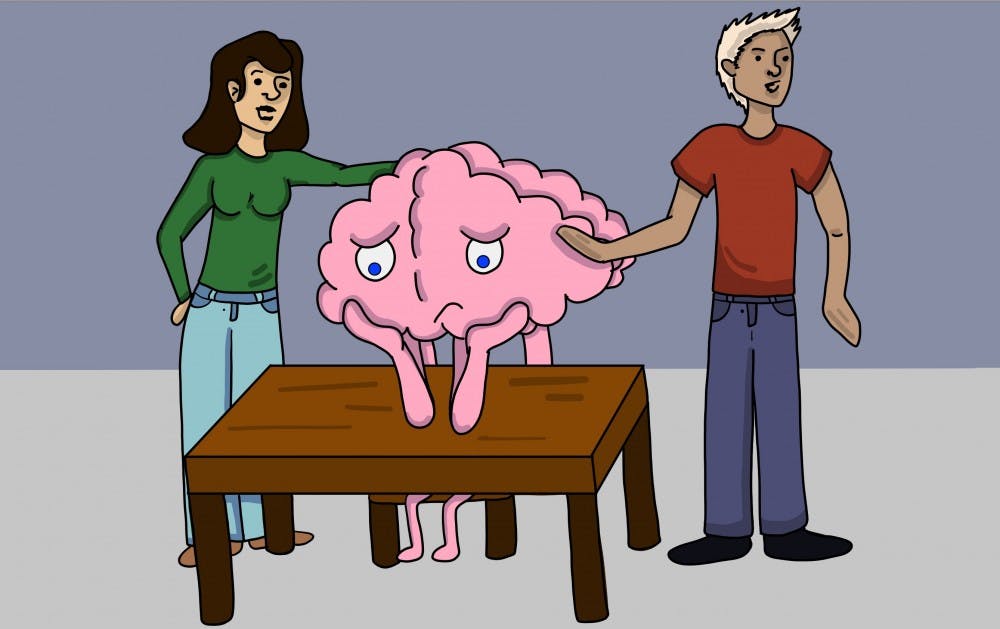"Check in on your friends" has become a common cry on social media, but simple texts and empty attempts of advocacy are not enough for students to help their friends who are suffering from a mental illness.
Asking about a friend's welfare in passing shouldn't be the only attempt at reaching out. Students need to make sure their friends know that they have a consistent support system around them and that they are not alone.
Mental illnesses are not uncommon among college students and are a growing concern on campuses. According to a 2015 report by the Center for Collegiate Mental Health, “the number of students visiting counseling centers increased by about 30 percent on average.”
However, many students still do not seek help, and not all students who are seeking help feel comfortable reaching out to their friends about their struggles.
The National Alliance on Mental Illness provides advice for those who want to look out for their friends.
While they do encourage people to ask if their friend is alright, NAMI also provides signs to look for in a friend who might be struggling. This includes unusual withdrawals from activities, changes in appetite and excessive use of drugs or alcohol.
NAMI also urges people to share their concerns with their friends, and to offer support. People can do this by talking to them regularly, including them in plans (even if the friend declines the offer) and educating themselves about mental health.
If someone feels like they are not capable of helping their friend in a meaningful way, help them find a counselor to talk to. Texting a friend once and not checking in again is not enough to help.
According to the ASU Student Wellness page, when speaking to a friend about your concerns, "it is better to say, 'I am concerned about you because I noticed you have not gone to class in a couple of weeks, and you are sleeping a lot,' rather than 'I think you might be depressed.'”
Voicing concerns about a friend's behaviors rather than their personality can make them feel less attacked and more likely to open up about their experiences.
Students struggling with mental health issues often feel as though they are a burden to those around them, but everyone experiences mental illness differently, and this requires individual support from their peers.
“Because everyone’s experience with mental illness is unique and ever-changing, what each person needs to feel supported is also unique and ever-changing," Ryan Stoll, a graduate research assistant in psychology, said.
Creating a comfortable environment for your friend who may be struggling means being consistently supportive.
"One day your friend might need you to remind them to eat, exercise or schedule fun activities to get out of the house, whereas another day they might really just need you to sit and listen to them." Stoll said. "Let them take the lead with what they need, while considering what you're realistically able and willing to do.”
A host of mental health services for students can be found at ASU Counseling Services.
If you are in crisis or need help right now, please call the National Suicide Prevention Lifeline at 1-800-273-8255. Additionally, you can call EMPACT’s 24-Hour ASU-dedicated Crisis Line at 480-921-1006.
Reach the reporter at cfusillo@asu.edu or follow @katiefusillo on Twitter.
Editor’s note: The opinions presented in this column are the author’s and do not imply any endorsement from The State Press or its editors.
Want to join the conversation? Send an email to opiniondesk.statepress@gmail.com. Keep letters under 500 words and be sure to include your university affiliation. Anonymity will not be granted.
Like The State Press on Facebook and follow @statepress on Twitter.




